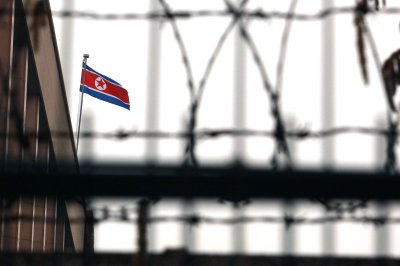
Nov. 5 (UPI) — The U.S. Treasury Department announced sanctions against eight individuals and two entities accused of laundering proceeds from North Korean cybercrime and information technology worker fraud schemes that help fund Pyongyang’s weapons programs.
The department’s Office of Foreign Assets Control said Tuesday that North Korea has stolen more than $3 billion over the past three years, using sophisticated techniques such as advanced malware and social engineering to breach financial systems and cryptocurrency platforms.
“North Korean state-sponsored hackers steal and launder money to fund the regime’s nuclear weapons program,” Under Secretary for Terrorism and Financial Intelligence John K. Hurley said in a statement. “By generating revenue for Pyongyang’s weapons development, these actors directly threaten U.S. and global security.”
Hurley added that the Treasury is “identifying and disrupting the facilitators and enablers behind these schemes to cut off the DPRK’s illicit revenue streams.”
The Democratic People’s Republic of Korea is the official name of North Korea.
Among those sanctioned are Jang Kuk Chol and Ho Jong Son, North Korean bankers who allegedly helped manage illicit funds, including $5.3 million in cryptocurrency — some of it linked to ransomware that has previously targeted U.S. victims.
Korea Mangyongdae Computer Technology Co. and its president U Yong Su were also added to the list. The company allegedly operates IT-worker delegations from the Chinese cities of Shenyang and Dandong.
Ryujong Credit Bank, another target, was accused of laundering foreign-currency earnings and moving funds for sanctioned North Korean entities. Six additional individuals were designated for facilitating money transfers.
Under the sanctions, all property and interests in property of the designated individuals and entities within U.S. jurisdiction are blocked, and U.S. persons are generally barred from engaging in transactions with them. Financial institutions dealing with the sanctioned parties may also face enforcement actions.
The move builds on earlier U.S. actions this year against North Korean cyber networks. In July, the State Department sanctioned Song Kum Hyok, a member of the Andariel hacking group, for operating remote IT-worker schemes that funneled wages back to Pyongyang.
The Justice Department also filed criminal charges in 16 states against participants in a campaign that placed North Korean IT workers in U.S. companies.
Tuesday’s OFAC statement cited an October report by the 11-country Multilateral Sanctions Monitoring Team, which described North Korea’s cybercrime apparatus as “a full-spectrum, national program operating at a sophistication approaching the cyber programs of China and Russia.”
The report added that “nearly all the DPRK’s malicious cyber activity, cybercrime, laundering and IT work is carried out under the supervision, direction and for the benefit of entities sanctioned by the United Nations for their role in the DPRK’s unlawful WMD and ballistic missile programs.”
The sanctions follow President Donald Trump‘s recent visit to South Korea, where a much-anticipated meeting with North Korean leader Kim Jong Un failed to materialize.
South Korea’s National Intelligence Service told lawmakers Tuesday that a summit could take place after joint U.S.-South Korean military drills scheduled for March, according to opposition lawmaker Lee Seong-kweun of the People Power Party.